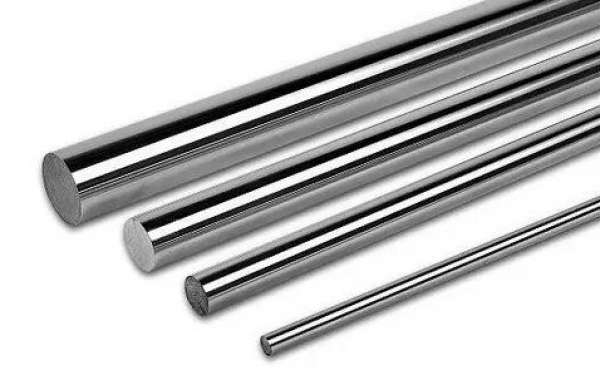When it comes to high-quality materials used in the medical and healthcare industries, surgical grade stainless steel stands out as one of the most important. Known for its strength, durability, and resistance to corrosion, this metal has become essential for manufacturing surgical instruments, implants, and various other medical devices. If you’re in Chicago or the surrounding areas, understanding surgical-grade stainless steel's significance and how it impacts the local market can be crucial, especially if you work in healthcare, manufacturing, or engineering.
What Is Surgical Grade Stainless Steel?
Surgical grade stainless steel refers to a specific type of steel that meets stringent standards of purity and performance. Most surgical stainless steels fall under the 300 series and 400 series, with 316L stainless steel being one of the most commonly used for medical applications.
316L stainless steel contains molybdenum, which enhances its corrosion resistance, especially against chlorides like those found in blood or saline solutions. The "L" in 316L refers to low carbon content, which improves its weldability and makes it less prone to corrosion at welded joints.
Surgical stainless steel is used for making a wide range of products, including:
- Surgical tools such as scalpels, scissors, and clamps
- Orthopedic implants like plates and screws
- Prosthetic devices including dental implants
- Hospital equipment and furnishings
- Medical wearables like body-piercing jewelry
Why is Surgical Grade Stainless Steel Important in Chicago?
Chicago is a hub for healthcare services, medical device manufacturing, and precision engineering. With its large healthcare systems and growing biotechnology sector, the demand for high-quality, surgical-grade stainless steel is substantial. The city has a thriving ecosystem of hospitals, clinics, and specialized medical facilities that rely on tools and equipment made from this durable material.
Moreover, the manufacturing industry in Chicago is robust, with many local companies specializing in stainless steel products for medical use. The proximity to quality manufacturers ensures that hospitals and clinics in Chicago have access to superior materials for their surgical instruments and equipment.
Properties of Surgical Grade Stainless Steel
Surgical grade stainless steel is chosen for its unique properties that make it ideal for medical applications:
- Corrosion resistance: Its resistance to corrosion makes it perfect for environments where it is exposed to bodily fluids, water, and other corrosive agents.
- Strength and durability: Surgical tools need to be durable enough to withstand repeated use. Stainless steel’s ability to hold up under stress makes it an ideal choice for surgical instruments.
- Non-reactive: The non-reactive nature of surgical-grade stainless steel means that it won’t cause adverse reactions when in contact with human tissues or fluids.
- Easy to sterilize: Stainless steel can be easily sterilized through methods like autoclaving, ensuring that instruments remain safe for medical use.
- Biocompatibility: The biocompatible nature of 316L stainless steel means it is safe for use inside the human body, which is essential for implants and other long-term medical devices.
The Process of Manufacturing Surgical Grade Stainless Steel Products
The process of creating surgical grade stainless steel is meticulous and requires the highest standards of manufacturing and quality control. Chicago-based manufacturers often follow these steps to create precision products:
- Raw Material Selection: The selection of stainless steel alloys, particularly the 316L grade, is crucial.
- Melting and Refining: The alloys are melted and refined to ensure the purity of the steel.
- Forming: The molten steel is then cast into various shapes, such as bars or sheets, depending on its intended use.
- Machining: Surgical instruments are cut, ground, and polished into their final forms.
- Finishing and Passivation: The final product undergoes a passivation process where the surface is treated to enhance its corrosion resistance.
- Sterilization: Before distribution, the products are sterilized to ensure they are ready for medical use.
Applications in Chicago’s Healthcare Sector
In Chicago, surgical-grade stainless steel is prevalent in hospitals, outpatient clinics, and specialized medical centers. From large-scale operations like Rush University Medical Center to small, specialized clinics, the use of surgical-grade stainless steel ensures the safety, reliability, and performance of medical tools.
Additionally, dental clinics in Chicago also depend on stainless steel for implants, dental instruments, and orthodontic equipment. Local manufacturers also produce a wide range of stainless steel products tailored to specific surgical needs, helping to maintain Chicago’s reputation for quality healthcare.
Leading Manufacturers in Chicago
Chicago hosts several leading manufacturers and suppliers of surgical-grade stainless steel products, including small precision shops and large-scale factories. These companies follow strict compliance with industry standards, such as ASTM and ISO certifications, to ensure that their products meet the highest safety and quality benchmarks.
Companies specializing in medical-grade stainless steel in Chicago include:
- Chicago Stainless, Inc.
- United Performance Metals
- Ryerson
These manufacturers are known for producing high-quality stainless steel used in medical applications, as well as for their expertise in custom fabrications based on client needs.
Why Choose Surgical Grade Stainless Steel?
Surgical grade stainless steel is a trusted material not only for its exceptional durability but also because of its safety in medical applications. Whether you’re working in healthcare, involved in the medical supply chain, or simply curious about the material’s importance in Chicago’s medical landscape, understanding why surgical grade stainless steel is favored is essential.
Some key reasons to choose surgical-grade stainless steel:
- Longevity: Its high durability means longer-lasting tools and equipment.
- Safety: Its non-reactive, biocompatible nature minimizes the risk of infections or complications.
- Cost-Effectiveness: Though it may be more expensive initially, its longevity and reusability make it a cost-effective option in the long run.
- Customizability: Manufacturers can custom-design instruments or implants to fit unique surgical requirements.
Conclusion
Chicago’s medical and manufacturing industries continue to thrive, with surgical-grade stainless steel playing a pivotal role in ensuring the health and safety of patients. Its unique properties make it the material of choice for a variety of medical applications, from operating rooms to dental clinics. As demand for medical innovations increases, surgical-grade stainless steel remains a critical component in ensuring that healthcare providers in Chicago and beyond deliver the highest quality care.
FAQs
1. What is the difference between regular stainless steel and surgical grade stainless steel?
Surgical-grade stainless steel has higher purity levels and is specifically designed to be corrosion-resistant, non-reactive, and durable for use in medical environments. Regular stainless steel might not meet these stringent requirements.
2. Why is 316L stainless steel often used for surgical applications?
316L stainless steel contains molybdenum, which increases its corrosion resistance. It is also biocompatible, making it suitable for use in implants and other medical devices.
3. Can surgical grade stainless steel rust?
While surgical-grade stainless steel is highly resistant to rust, under certain extreme conditions like exposure to harsh chemicals or saltwater for prolonged periods, it may corrode. However, it is much more resistant than other metals.
4. Where can I find surgical grade stainless steel products in Chicago?
Several suppliers and manufacturers in Chicago offer surgical-grade stainless steel products, including Ryerson and Chicago Stainless, Inc.
5. Is surgical grade stainless steel safe for body piercings?
Yes, surgical-grade stainless steel is commonly used for body jewelry because it is non-reactive and safe for prolonged skin contact.




